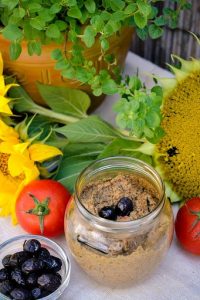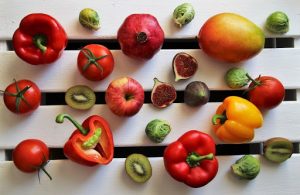What are the Plant-based Diet Side Effects?
You’ve probably heard from many people that a plant-based diet doesn’t just come with pros; there are a few cons as well. While we have mounting scientific evidence about the benefits, is it true that these diets have some disadvantages too? And if so, what are the plant-based diet side effects?

These so-called side effects often hinder people from making the switch to a plant-based lifestyle. But oftentimes, they don’t really go in-depth of what those side effects are and how they can perhaps avoid them. A plant-based diet is essentially super healthy, well-balanced, and prevents many life-threatening diseases (those are facts).
When it comes to side effects, it’s important to make the distinction between what’s real and what’s a myth. Yes, there are some side effects, but they don’t even make a fraction in the equation when you compare them with the massive benefits you get. Also, not everyone faces those side effects, and most of them are easily avoidable.
Side Effects or Myth?
Most of the side effects of plant-based diets, especially the vegan diet, you’ll hear about spring from common misconceptions. It’s unfortunate that many people simply believe word of mouth over scientific evidence. So to make that distinction, it’s important to address the common myths surrounding these diets.
Here are the common myths that people often interpret as side effects of a plant-based diet:
Myth #1: Plant-based Diet isn’t Wholesome
For centuries, our reliance on animal protein has increased drastically. In the traditional Western diet, eggs, meat, and dairy have taken center stage. These foods are promoted as essential nutrient providers when the reality is that it’s easy to get the same nutrients from plant-based sources exclusively.

Therefore, a common misconception regarding plant-based diets is that they don’t provide all the necessary nutrients because they lack animal products. That’s simply untrue as you get most of the nutrients you get from animal protein and dairy from plant-based sources too.
A plant-based diet is pretty wholesome and nutrient-dense. In fact, it provides you with nutrients that meat products fail to provide. The main nutrient in this scenario is fiber. You cannot get nearly enough fiber relying mostly on animal products, as fiber comes mostly from plant-based sources.
As for missing meat, a plant-based diet isn’t totally missing out on meat. You can find plenty of plant-based meat alternatives in the market that provide similar taste and texture to meat. As a result, a plant-based diet is super diverse, and you can even consume most of those meat-based dishes you love.
Myth #2: Plant-based Diet isn’t Good for Children
There are also doubts about plant-based diets being healthy for children. It’s easy to understand why that’s a common misconception. Plant-based diets are mostly devoid of dairy products, and milk is considered an important food for growing children.
The truth is that a plant-based diet is just as healthy for children as it is for adults. In fact, the disease-preventive nature of plant-based diets can help growing children avoid many diseases when they grow up. We already know that a plant-based diet prevents conditions like hypertension, high cholesterol, and heart disease.
You have to give children appropriate plant-based foods as they progress. This can be tricky as children’s needs may vary from those of adults. Then, there’s also the question of children not liking some plant-based foods. (Broccoli, we’re looking at you!)
The Physicians Committee for Responsible Medicine recommends starting children on a plant-based from a very early age. They have even created a simple guideline for parents to adopt a healthy and diverse plant-based diet for different stages of growth of children.
A plant-based diet may also be good for couples struggling to get pregnant.
Myth #3: Plant-based Diet is Low in Calcium
This is a blatant misconception about plant-based diets that they don’t give you enough calcium.
For ages, we’ve been taught that milk is the main source of calcium. If you don’t drink enough milk, your bones will weaken as a result of calcium deficiency. Yes, milk may be rich in calcium, but the saturated fats in milk are also a big health concern, raising the risk for many heart diseases.

In the video Plant vs. Cow Calcium, Dr. Michael Greger compares the two sources of calcium in detail. Plant-based foods like leafy greens have abundant calcium that absorbs twice as much as milk calcium. So there’s no way that you can’t get enough calcium from plant-based foods, provided you eat the right stuff.
Myth #4: Plant-based Diet Lowers Iron
Iron deficiency is common throughout the world. It’s even prevalent in communities that do eat meat regularly, which raises the question if it’s even a problem unique to plant-based diet followers. Iron deficiency can have serious consequences, as it leads to anemia, which, in turn, can lead to other diseases.
A plant-based diet can provide ample iron to meet your daily recommended intake, depending on your sex and age group. You have to ensure you include enough iron-rich foods in your diet. Foods like potatoes, beans, spinach, and tofu are rich in iron.
The iron in plant-based sources is non-heme iron, which has a lower absorption rate than heme iron found in animal products. So you just have to plan your food intake accordingly, so that you get enough iron overall. Heme iron may be easy to absorb, but studies have shown that it also increases the risk of stroke and cancer.
Myth #5: Plant-Based Diets Aren’t Good for Athletes and Bodybuilders
The presence of so many athletes and bodybuilders who are plant-based enthusiasts should be enough to debunk this myth. But let’s get into the science of it to show how plant-based diets are good enough for athletes just as they are good for everyone else.

Protein is the main concern for aspiring athletes that a plant-based diet will not give them nearly enough protein. That’s not something to worry about, as you can get plenty of protein from plant-based sources like beans, lentils, nuts, and tofu.
Plant-based foods can also provide ample energy for endurance athletes like runners to train harder. More importantly, a plant-based diet is anti-inflammatory by nature. As a result, it can reduce recovery time for the muscles and allow you to train hard.
If you want an in-depth look at how a plant-based diet is changing the athletic diet scene, you should watch ‘The Game Changers’ documentary.
Myth #6: Plant-Based Diets Don’t Provide Enough Protein
This myth comes from a long-held view that protein intake is equivalent to meat consumption. Yes, meat provides a generous amount of protein. However, you can get the same amounts through plant-based sources without any health risks.
Soy is the king of protein when it comes to plant-based foods. Soy-based foods such as tofu, tempeh, and soy milk are great sources of protein. Similarly, leafy greens and cruciferous vegetables are also good sources of protein.
You can easily get ample protein according to your weight through vegetables. You can also find many protein-rich snacks like mixed nuts that will add more protein to your daily food intake. It’s all about knowing where to get your protein from.
What Are The Side Effects of Plant-Based Diet?
So what are the plant-based diet side effects in reality? The above are merely misconceptions, but there are a few side effects that can occur if you’re not careful. The benefits still supersede these few disadvantages that you can easily avoid.
Family Ribbing
Once you decide to go plant-based, prepare yourself for some ribbing from your family and friends. You’ll hear some classic vegan jokes on the table, especially around Thanksgiving. But obviously, the health benefits you’re getting are worth tolerating the little teasing from your loved ones.

Your social life might change too when you fully dedicate yourself to a plant-based diet. There will be some awkward barbeques and some confusing restaurant picking, but you’ll get through it. Eventually, the people around you will get used to your new lifestyle and accommodate it willingly if not adopt it themselves.
Just wait and let your health and great body shut them down!
Easy Weight Maintenance
A diet rich in vegetables, fruits, whole grains, and nuts is a great solution for weight loss. But what about people who are not overweight? Do they lose weight too on a plant-based diet?
Plant-based meals are nutrient-dense and low-fat by nature, thanks to the focus on whole plant foods. So this means you can consume bigger meals and still maintain a healthy weight quite easily.
This is not to say that you should overeat, you should design your overall meals to give you at least 2000 calories a day for a typical adult. If you’re someone who struggles with low weight, you can add more calories per day, if need be.
Some people are initially surprised at just how much you can eat on a plant-based diet. It’s one of the greatest benefits, in my opinion. But when going plant-based, you get all that additional fiber which does wonders to fill you up. That alone does wonders for your digestive system and your body will thank you.
Gas
Vegan flatulence is a thing, and believe it or not, it’s not a bad thing. This is more of an initial problem when you’re switching to a plant-based diet. The nutrient responsible for all that gas and bloating you’re feeling is fiber.

But wait, isn’t fiber good? Yes, it is, and all that gas is a sign that it’s doing its magic. The fiber is gradually fixing your gut flora, flourishing the good bacteria, and getting rid of the bad. So you can feel gassy, oftentimes, after fiber-rich vegetarian meals.
This is just a natural consequence of going green. However, with time, as your gut microbiome replenishes, this issue resolved on its own.
Vitamin B12
Now, this is a little bit of a bummer that you don’t get Vitamin B12 through a plant-based diet. Vitamin B12 is readily available in animal-based foods, as it’s synthesized from soil bacteria in animals. A deficiency in Vitamin B12 can also lead to anemia and a host of other health-related problems, such as cognitive decline.
While plant-based foods cannot naturally provide B12, you can get it through supplements or fortified foods. Since this is a real side effect, you’ll find plenty of plant-based foods fortified with B12. However, the best solution is supplementation, as they will provide you with an ample amount that you need on a daily basis. You’ll also find it readily in Nutritional Yeast (aka: Nooch), Fortified Plant-Based Milk, seaweed, and mushrooms.
Recently, there has been some breakthrough in plant-based B12. Some scientists have discovered that water lentils do contain this important vitamin. So it seems like in the near future, plant-based B12 is a real possibility.
Saying Goodbye to Some Foods You Like
Yes, one of the side effects of plant-based diets is that you may have to say goodbye to some of the foods you’ve probably been eating all your life. A whole-food plant-based diet has very little processed foods and no animal-based products. So if you like your steaks, shakes, and cakes, you need to let go.
In hindsight, you welcome a very positive change in your life. If you’re overweight or have certain diseases, it’s likely that those foods you loved were part of the reason. Saying goodbye to them will only put you on the path to recovery, and soon you’ll say goodbye to all those health concerns as well.
A lot of stuff you can still enjoy like cakes, pastries, fries, and donuts, but keep a check on them. Also, if you miss eating meat, you can go for meat alternatives and enjoy those meat-based dishes like burgers, meatballs, lasagna, etc.
Wrap Up
Now that you know what are the plant-based side effects and what are myths, you’re better informed to make the distinction. Not everything you hear is the truth, so make it a habit to do your own research.
Nothing is perfect ever, so this type of diet can also have some drawbacks. Luckily, these side effects are easily manageable. And with more research and technological advancements, perhaps soon enough, we might not even have those side effects.
You may also like: WHAT CAN YOU EAT ON A PLANT-BASED DIET? >>CLICK HERE!










